Nigeria
Regional rivals Morocco and Algeria are engaged in two competing gas pipeline megaprojects linking them to Nigeria, targeting the European market, but in a context where the EU would like to do without gas by the end of the decade.
The most recent is the Nigeria-Morocco Gas Pipeline (NMGP), approximately 6,000 km long, which should cross 13 African countries on the Atlantic seaboard to transport billions of cubic meters of Nigerian gas to the Cherifian kingdom. From there, it must be connected to the Maghreb Europe Gas Pipeline (GME).
No start date for construction has been set: "The pipeline is being planned. We are at the feasibility study stage," Nigerian Oil Minister Timipre Sylva told AFP.
The idea for the project was launched in 2016 by King Mohammed VI during a visit to Abuja, aimed at strengthening partnerships with African countries.
Its revival is explained by the decision of Algiers - Africa's leading exporter of natural gas - to terminate last year the GME contract supplying Spain with Algerian gas via Morocco, after the rupture of diplomatic relations with Rabat.
These dissensions were motivated in particular by the thorny file of Western Sahara - territory on which Rabat claims its sovereignty while Algiers supports the separatists of the Polisario Front - deprived Morocco of the Algerian gas which it took as a right of passage.
Beyond that, the NMGP is part of a geopolitical context marked by soaring hydrocarbon prices since the invasion of Ukraine by Russia.
The implementation of this giant gas pipeline - at an estimated cost of 23 billion euros - remains however conditional on "obtaining the agreement of the countries through which it will pass", recalled the Nigerian Minister of Oil.
At the end of 2022, Rabat and Abuja signed seven memorandums of understanding with Gambia, Guinea -Bissau, Guinea, Sierra Leone, Ghana, Mauritania, and Senegal, and another with the Economic Community of Eastern European States. West Africa (ECOWAS).
Agreements that "confirm the commitment of the parties in this strategic project", welcomed the Moroccan Office of Hydrocarbons and Mines (ONHYM).
Rabat is banking on Nigeria's enormous reserves to create "a stable, predictable and mutually profitable gas market" in Africa, Moroccan geopolitics researcher Jamal Machrouh told AFP, also stressing its "strategic interest for Europe".
But questions are emerging when Brussels says it wants to get rid of fossil fuels in the medium term.
"We have to count when it (the gas pipeline) is finished. Are we still going to want to use gas, methane?", wondered recently in Rabat the head of European diplomacy, Josep Borrell, stressing that Morocco has a strong potential in clean energies such as hydrogen, wind, and solar.
The acceleration of cooperation between Rabat and Abuja coincides with the relaunch of the Trans-Saharan Gas Pipeline (TSGP) to link Nigeria to Algeria via Niger, at a cost estimated at between 12 and 18 billion euros. Last July, Algiers, Abuja, and Niamey signed a memorandum of understanding to materialize this 4,128 km long gas pipeline, without setting a start-up date.
Launched in 2009, the project also aims to transport Nigerian gas to the European continent. Once it has arrived in Algeria, it should be shipped there, in particular via the Transmed gas pipeline which already links the Algerian deposits to Italy via Tunisia.
"Technical studies are in progress," Algerian Energy Minister Mohamed Arkab said on February 18 in Algiers. According to the Algerian expert Ahmed Tartar, the three partners are now "looking for donors".
"We can estimate a delay of 2 to 3 years for the finalization of the project" which "will meet a significant part of the future needs of Europe", assures AFP Mr. Tartar, whose country is the third supplier of natural gas for Europe.
Optimism tempered by analyst Geoff Porter who underlines "its great vulnerability to jihadist attacks" in the Sahelian zone and to the hostility "of local communities if they have the feeling of being exploited for a project from which they derive no benefit ".
Another downside: Europe, which is seeking to free itself from Russian gas, could not accept "a strong dependence on a single supplier", whether Algerian or Moroccan, according to Moroccan researcher Machrouh.



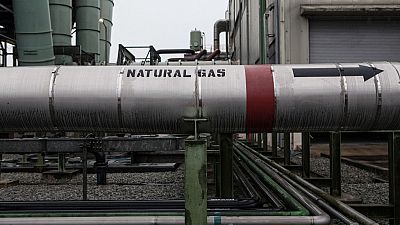

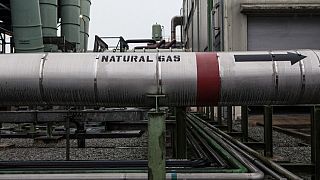
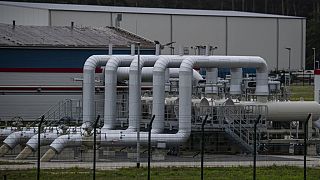
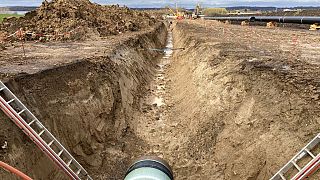


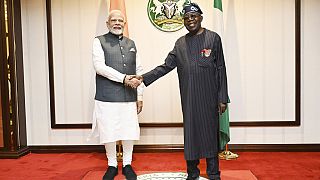



02:09
DRC on a mission to financing the world's largest hydropower dam
Go to video
Moroccan journalist sentenced to 18 months after remarks about a politician
Go to video
Morocco: What do limitations on preaching about Gaza war reveal?
02:20
Morocco's museum of modern art celebrates 10-year anniversary
00:55
Morocco's population grows in a decade to reach 36.8 million
08:00
Exploring Algeria's maritime potential: How key ports like Annaba and Djen Djen drive growth